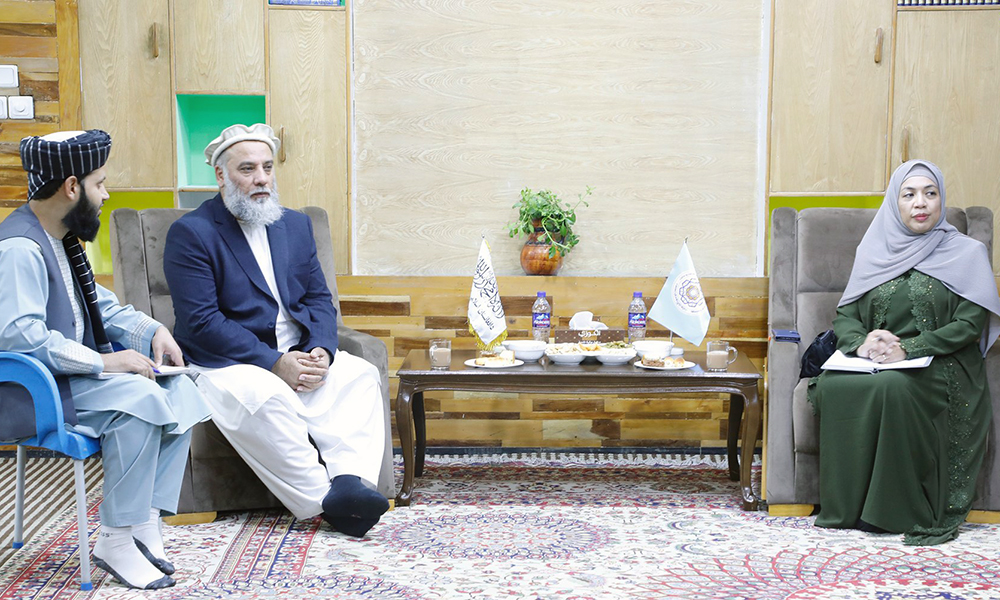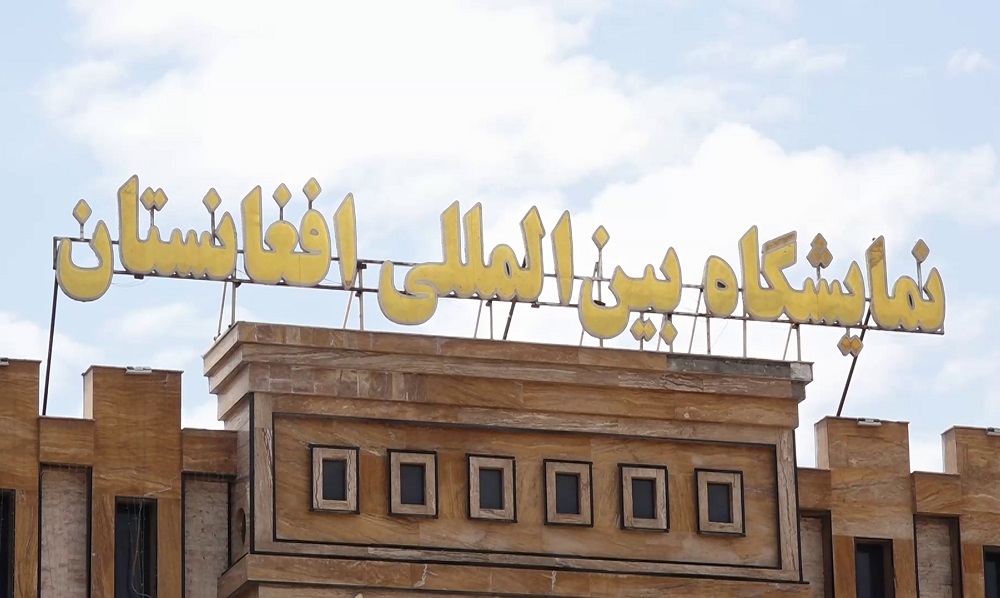Business
Hundreds protest in Kabul against US decision on Afghan assets

Hundreds of people demonstrated in Kabul on Saturday against the United States’ decision to transfer $3.5 billion of the country’s frozen foreign reserves to a Swiss fund.
The protesters, who gathered in front of the former Afghanistan Human Rights Commission office, chanted anti-US slogans as they blamed the United States for the ongoing humanitarian and economic crisis in Afghanistan.
They called on human rights organizations to press the US to release Afghan assets.
“The $9 billion frozen assets belong to Afghanistan and it should be handed over to Afghanistan,” said Mudasir, a protester.
“By freezing the $9 billion assets, the US is killing the Afghan children economically,” said Lal Aqa Amiri, a protester.
On Wednesday, Washington announced it would transfer $3.5 billion in Afghan central bank assets into a new trust fund in Switzerland.
The Islamic Emirate of Afghanistan (IEA) condemned the move as being against international norms.
Meanwhile, China said on Thursday that the US-blocked Afghan foreign reserves should be returned immediately so that Afghanistan could utilize the money independently.
“The frozen assets are life-saving money of Afghan people, which should be returned immediately, disposed of by Afghanistan independently, and used for the improvement of the livelihood and peaceful reconstruction,” Chinese Foreign Ministry spokesperson, Mao Ning, said.
Russia also condemned washington’s decision.
“We consider this step to contradict International Law and violate the sovereignty of the foreign state. The people of Afghanistan have the right to independently command assets belonging to them without any external control,” Russian embassy in Washington said on Thursday.
It added that such actions by the United States, “no matter which humanitarian mottos it uses as a smokescreen, will only exacerbate misery of the Afghan people.”
Business
Azizi calls on Malaysian investors to invest in Afghanistan

Nooruddin Azizi, Acting Minister of Commerce and Industry, met with representatives from the ministries of foreign affairs, defense and interior of Malaysia, along with other senior officials, on Wednesday and called on Malaysians to invest in Afghanistan.
The visiting delegation is being led by senior diplomat Dr. Shazelina Zainul Abidin.
According to the IEA’s foreign ministry, the two sides discussed bilateral trade, holding a business communication conference to strengthen trade relations between the two countries, the trade balance between Afghanistan and Malaysia, and creating a market for Afghan products, including carpets, cotton, and minerals.
According to the ministry, at the end of the meeting, the Acting Minister emphasized the increase of investment from regional countries in Afghanistan and called on Malaysian investors to also invest in Afghanistan.
Business
Afghanistan starts exporting via railway to Turkey

The Ministry of Interior says that Afghanistan has started exporting goods to Turkey via the Herat-Khaf railway line.
In a post on X, the ministry said: “Afghanistan’s exports to Turkey started in a calm atmosphere through the Herat-Khaf railway line.”
The ministry added that one train will run daily for a month and then two trains will run daily.
According to the ministry, the security of Khaf-Herat railway line is provided by the guards of the National Public Protection Agency.
Khaf-Herat railway project not only connects Iran and Afghanistan by rail, but also completes a 2,000-kilometer route along the east-west rail corridor from China, through Uzbekistan, to Afghanistan, to Iran, and on to Turkey and Europe.
As a landlocked country, this railway network will provide a safe route to connect with Europe via Iran’s railway network and Iran’s southern ports.
This railway line is strategic for trade between Iran and Afghanistan and will allow six million tons of goods to be sent between the two countries.
Business
Afghanistan, Kazakhstan to hold joint expo in Kabul

A joint expo between Afghanistan and Kazakhstan will be held in Kabul in the next four days, officials said on Sunday.
Officials of the Ministry of Industry and Commerce said that the two-day expo will be held for the purpose of expanding and strengthening trade relations between the two countries.
“This expo will be held as a follow-up of the Kazakh-Afghan international expo, which was held in the city of Astana, Kazakhstan, with the participation of a large delegation of the government and the private sector of the Islamic Emirate of Afghanistan,” Abdulsalam Javad Akhundzadeh, the spokesman of the Ministry of Industry and Commerce, said.
“At this expo, domestic products from different sectors of Afghanistan and the Republic of Kazakhstan will be put on display for two days.”
According to officials, 40 large Kazakh companies, and 40 large Afghan companies will exhibit their products.
Mohammad Saber Latifi, head of the Afghanistan International Expo Center, said that fruits, minerals and commercial services will be displayed at the expo.
During the expo, various memorandums of understanding for the trade of goods are also expected to be signed by companies.
-

 Latest News4 days ago
Latest News4 days agoPakistan’s frontiers minister stresses ‘dignified’ return of Afghan refugees
-

 Regional3 days ago
Regional3 days agoIranian president lands in Pakistan for three-day visit to mend ties
-

 Climate Change4 days ago
Climate Change4 days agoMassive river flooding expected in China, threatening millions
-

 Latest News2 days ago
Latest News2 days agoRashid Khan named AWCC’s brand ambassador
-

 Latest News4 days ago
Latest News4 days agoChinese keen to invest in Panjshir-Kabul water conduit project
-

 World4 days ago
World4 days agoTwo Japan navy helicopters crash, one body found, 7 missing
-

 Sport3 days ago
Sport3 days agoKolkata beat Bengaluru by one run in IPL as Kohli fumes at dismissal
-

 Sport3 days ago
Sport3 days agoACL: Aino Mina 3-0 Istiqlal Kabul; Attack Energy 3-0 Khadim
























